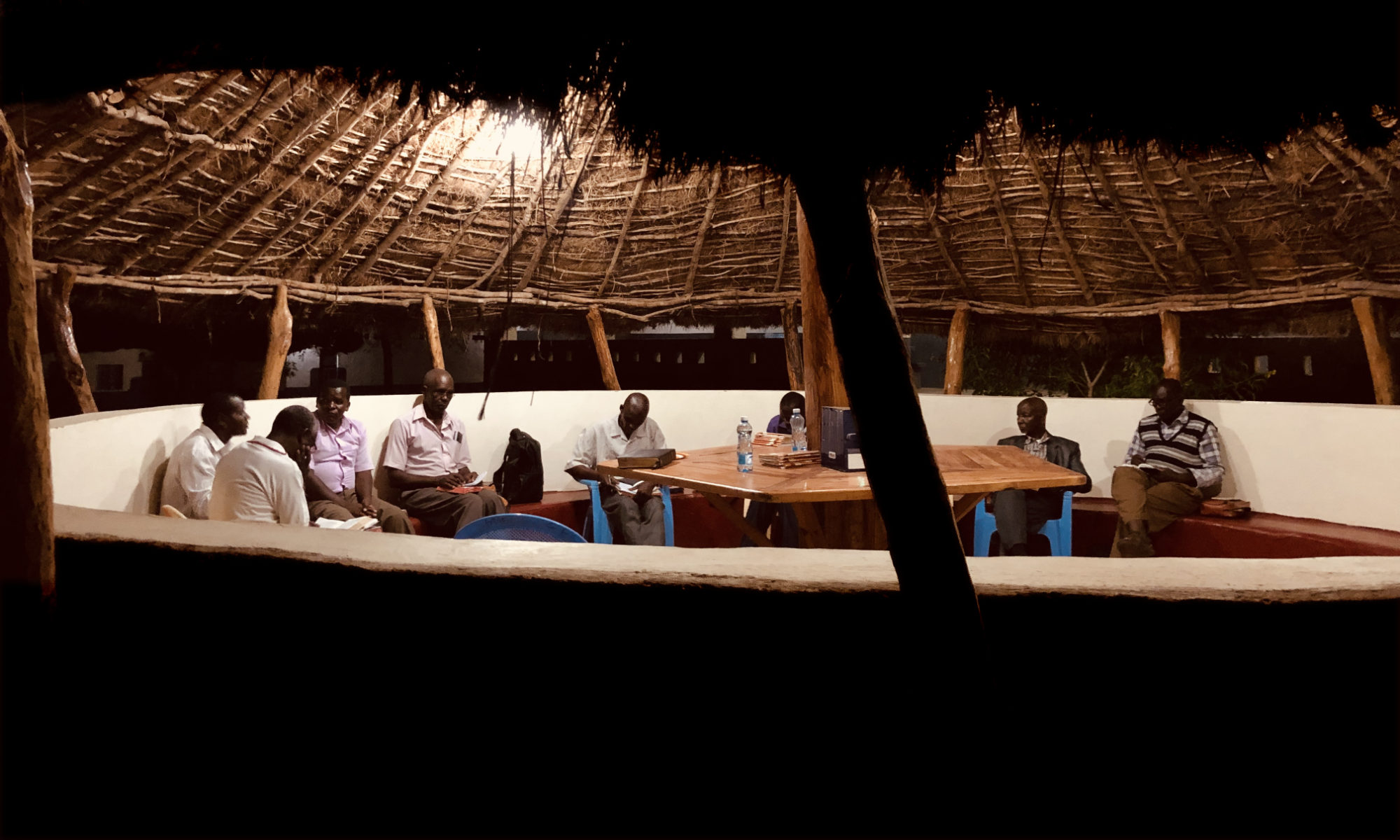
My name is Aaron Dunlop. I grew up in Northern Ireland in a pastor’s home, in which missions was part of the family conversation. In 1995 I travelled to Kenya with my father. He returned to Kenya in 1998 and established a ministry in a rural part of eastern Kenya.
After Bible college in Northern Ireland, I studied linguistics at Trinity Western University near Vancouver, Canada. Around that time, I met and married my wife Grace. The next year, we moved to Greenville, SC, to study theology at Geneva Reformed Seminary. After finishing seminary, I planted a church in Victoria, BC, where I pastored for ten years.
Life in Kenya

In 2018, we moved to rural Kenya with FAME, a small mission organization based in Northern Ireland. FAME operates an orphanage, baby rescue unit, clinics, and vocational training. There I managed the compound, taught at a Bible college, preached in nearby churches, schools, and prisons, and I also participated in pastors’ conferences across Kenya.
Living in rural Kenya had its challenges. Water conservation was important. We harvested rain into two large tanks. The electricity was often cut off due to weather or problems with grid equipment, so we used solar panels and a backup generator to maintain our power supply. In the rainy season, roads were often impassable.
Ministry in Rural Kenya

Life in rural Kenya is very different from urban life in Nairobi or semi-urban life in one of Kenya’s smaller cities. Many pastors who live and minister in the bush have no access to resources that are taken for granted in other parts of the world. The traditional oral culture is still prevalent and reading and self-study do not come easy.
Everywhere I went, whether to a conference in Eldoret or Ukundu, or meeting pastors in Garissa, or in our own rural area near Mwingi, I was confronted with the needs of the Church. The recurring theme in my conversations with pastors was the demand for suitable resources to equip them for ministry. I appreciated the insight and honesty of pastors who identified this need themselves. They recognized also that the lack of resources hinders the maturity of indigenous church leaders and of the Church in East Africa more generally. In addition to this, the lack of maturity perpetuates a long-standing pattern of dependence on leadership from churches in Britain and North America, which many acknowledge and wish to change.

The long-term solution was articulated one evening, in conversation with one of the more senior local pastors. He said, “We need to develop a culture of reading among these men.” That was it—a culture of reading!
As I thought on this, I began to think of an economic and efficient method of working out this solution. Missions did not need to be such a financial burden, I thought, especially in the digital world in which we are living. We can help pastors in rural Africa from wherever in the world we live and with the various gifts the Lord has given to his Church.
Northern Ireland

I returned with my family to Northern Ireland at the beginning of 2020, intending to establish a ministry to source and prepare material for rural pastors in East Africa. I am thankful that others have come to share my vision, especially Calvin Goligher who is using his skills as the Development Director. We look forward to what we are able to accomplish together, with the Lord’s help, and also with yours, if you are able to partner with us.
